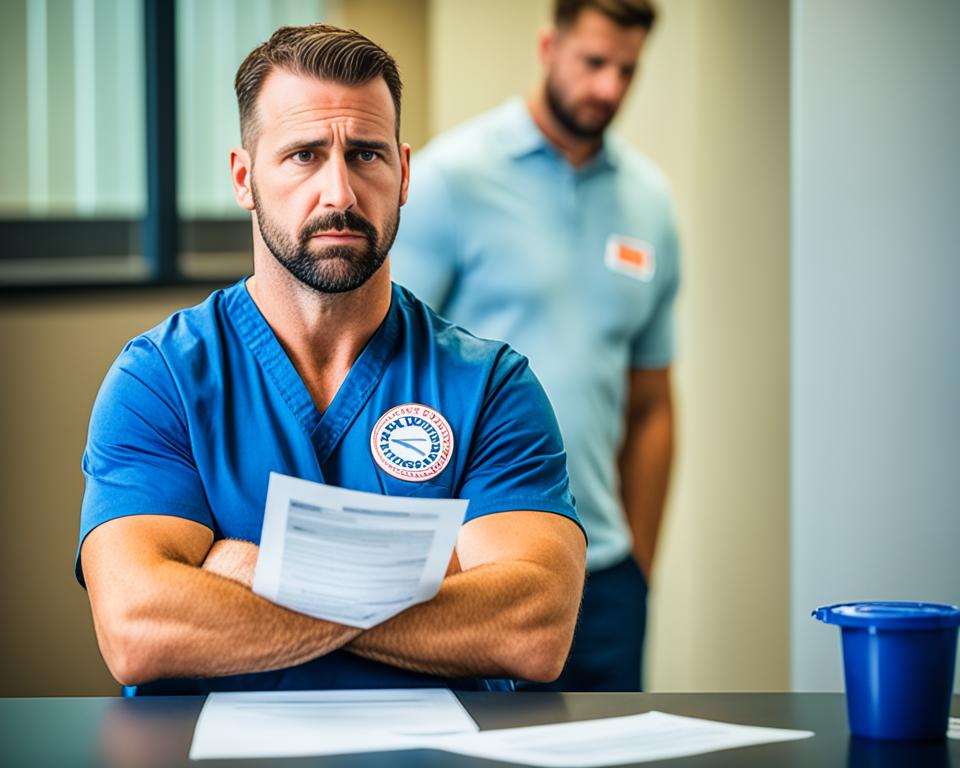Ever wondered exactly when workers comp starts paying in Florida after an injury? Understanding this timeline can be crucial for anyone who might find themselves in need of workers comp coverage Florida offers. Indeed, with the myriad of rules and regulations, it’s easy to feel lost without clear guidance.
Under Florida’s workers comp insurance laws, reporting your injury promptly is essential. Employees need to report workplace injuries within 30 days. Once your employer has that information, they have 7 days to notify their workers comp insurance carrier. Now, right here things can seem overwhelming, but keep in mind that knowledge is power.
Within 3 days of the insurance company being informed, you should receive an informational brochure. This guide will outline your rights and responsibilities, aiming to simplify the Florida workers comp process for you. And remember, you won’t need to worry about submitting bills—your authorized medical care is handled by the employer or the insurance company.
Interestingly, initial benefits don’t cover the first seven days. Yet, if your disability extends over 21 days, you’re in luck, as compensation includes the initial week. Your first check should arrive within 21 days after the employer informs the insurance company about your injury. Commonly, these payments replace 66 2/3 percent of your average weekly wage before the injury, ensuring some financial consistency during your recovery.
There you have it, an overview of when workers comp starts paying in Florida. Stay tuned as we dig deeper into initial steps to take after a workplace injury, factors that could delay your payments, and how to ensure you receive the correct amounts. Don’t miss out on this vital information—it could make all the difference in your recovery journey.
The Initial Steps to Take After a Workplace Injury
If you’ve had a workplace injury, it’s crucial to act fast to secure your Florida workers comp benefits. First off, reporting it is key.
Reporting the Injury
As soon as you’re injured, tell your supervisor immediately. Don’t wait! In Florida, you have up to thirty days to report a workplace injury, but doing it right away helps speed up your workers comp eligibility Florida claims. Also, you can report your injury directly to the insurance company and even seek help from the Employee Assistance Office (EAO) if needed.
Remember, your employer has just seven days to report your injury. The sooner you start this process, the sooner you’ll receive your benefits. You can always contact the workers’ compensation hotline at 1-800-342-1741 for any additional support.

Employer’s Responsibilities
Your employer has a set of responsibilities to ensure your workers comp eligibility Florida goes smoothly. They must report your injury within seven days of becoming aware of it. This quick action is necessary to get your Florida workers comp benefits moving.
Apart from reporting, they need to provide medical care authorizations so that you can get the treatment you need without delay. In some circumstances, getting legal advice can be beneficial to make sure all your rights are protected.
Most importantly, employers are obligated to keep things transparent and provide you with all necessary information quickly. This collaboration can substantially ease your recovery journey.
Remember: The sooner you report your injury, the smoother and quicker the process will be!
Understanding the Waiting Period for Workers Comp Payments
In Florida, navigating the workers comp payment timeline can be confusing. Let’s break it down to make it easier. Workers must endure a 7-day waiting period before wage loss benefits begin, with payments commencing on the 8th day of absence from work due to injury.

Wage Loss Benefits Waiting Period
According to Florida workers’ compensation law, if your disability extends beyond 21 days, you may receive compensation for the first seven days of your disability. Typically, workers should receive their first workers’ compensation check within 21 days of reporting the injury to their employer. Interestingly, many find their first check arriving before the 21st day. These wage loss benefit checks are generally issued bi-weekly, providing a steady flow of compensation as you recover.
Medical Benefits Timeline
When it comes to medical benefits, they usually kick in right away once the employer or insurance company authorizes them. There’s no waiting period here, as the goal is to ensure you receive prompt medical attention. Immediate medical care can make a significant difference in your recovery process, ensuring you get back on your feet without unnecessary delays or complications.
Understanding the intricacies of the workers comp payment timeline and recognizing the impact of the workers comp waiting period can help ease some of the stress during a challenging time. Utilize these benefits diligently to support your path to recovery.
When Does Workers Comp Start Paying In Florida?
Understanding when workers comp starts paying in Florida is crucial, especially if you’re navigating a work-related injury. The process begins with reporting your injury to your employer within 30 days of the incident or becoming aware of it. Once reported, employers have seven days to notify their workers’ comp insurance carrier.
Insurance companies must send you an informational brochure within three days of receiving the claim notification. This brochure outlines your rights and responsibilities under your workers comp claim in Florida. It’s good to know that your medical treatments related to the injury will be directly reimbursed to the service providers by the workers comp insurance Florida offers.
One important aspect to keep in mind is the waiting period for wage benefits. There is a seven-day wait before any wage loss benefits kick in. If your disability lasts more than 21 days, you will receive wage benefits for those initial seven days. For injuries resulting in either full or partial disability, the benefits typically amount to two-thirds of your pre-injury average weekly wages.
Workers are generally compensated for lost wages by receiving benefits every two weeks. The first check should arrive within 21 days of reporting the injury to your employer. However, no payments to replace lost earnings are issued during the initial seven days following the injury.
Ensuring that your claim is promptly reported and supported with the necessary documentation will help minimize delays in your Florida workers comp process. Administrative hurdles can cause delays, although strict penalties are imposed on insurance companies that intentionally delay payments. So, staying on top of your workers comp claim in Florida and keeping regular communication with your insurance carrier can make the process smoother.
Factors That Could Delay Your Workers Comp Payments
When dealing with the Florida workers comp process, various factors can cause delays, frustrating many already stressed workers. Understanding these potential setbacks can help you navigate the system more efficiently and mitigate delays in receiving your benefits.
Administrative Delays
Administrative issues often become a major hurdle in the Florida workers comp process. Delays can stem from simple mistakes like incomplete or incorrect paperwork. These errors can lead to prolonged claim processing times as all details must be accurate and thoroughly documented. Further delays may occur while obtaining all necessary medical records, creating a lag in progressing your claim. It’s vital to stay on top of these details and ensure everything is correctly filled out and promptly submitted.
Insurance Company Delays
The workers comp claim Florida process can also experience drag due to the insurance company. They might hold off on payments while waiting for recorded statements, or delay scheduling diagnostic tests. It’s crucial to note that Florida law imposes penalties on insurance companies that intentionally delay payments. Hiring a skilled workers’ compensation attorney can be beneficial. They can help combat these delays, ensuring the timely payment of your benefits and streamlining your claims process.
How Much Will You Receive from Workers Comp Payments?
Getting injured on the job is a stressful experience, but understanding how workers comp Florida benefits are calculated can help bring some clarity. While these benefits generally replace 66 2/3 percent of your average weekly wage, the amount you’ll receive can vary based on several factors.
Calculation of Benefits
The calculation of benefits is primarily based on your earnings before the injury. For instance, you’ll typically receive 66 2/3 percent of your pre-tax average weekly wage. However, there are specific caps in place as dictated by Florida law. Keep in mind that workers’ comp Florida benefits are paid bi-weekly, and you won’t be compensated for the first seven days of disability unless your disability extends beyond 21 days.
If you need assistance determining the exact amount you’re entitled to, it’s often wise to consult an experienced lawyer. They can ensure that the calculation of benefits is accurate and that you’re getting what you’re entitled to.
Temporary Total vs. Partial Disability Payments
Injured workers may qualify for Temporary Total Disability (TTD) or Temporary Partial Disability (TPD) payments. TTD benefits are calculated at 66 2/3 percent of your regular wages at the time of injury, with a statewide maximum reimbursement amount. A combination of TTD and TPD payments is allowed, with a total cap not exceeding 80% of your pre-injury average weekly wage. Generally, TTD is for those who cannot work at all due to the injury, while TPD is for those who can return to work in a limited capacity.
For workers earning less than 80% of their pre-injury wages due to restricted duty, TPD payments fill the gap. They are calculated as a percentage of the difference between pre-injury and post-injury earnings. Furthermore, in severe injury cases, you may be eligible for 80% of your regular wages for up to six months post-accident.
Understanding these distinctions and the exact benefits you can receive is crucial. This is where professional legal advice can play a significant role in ensuring you receive the full benefits due to you.
Is There a Connection Between Chick-fil-A Opening in Florida and Florida Workers’ Compensation Laws?
The curiosity surrounding whether there’s a link between Chick-fil-A opening in Florida and the state’s workers’ compensation laws has sparked discussions. However, when chick fil a opened in florida, its arrival was celebrated more for its tasty chicken sandwiches than any notable changes to workplace legislation or policies in the state.
Conclusion
In conclusion, it’s essential for employees in Florida to grasp the ins and outs of workers comp coverage. Understanding the payment timeline, reporting requirements, and potential delays is key to navigating the workers comp insurance Florida process effectively. Remember, the insurance carrier has 14 days to accept or deny a claim after it’s filed, so timing is crucial.
Temporary total disability benefits have a maximum duration of 104 weeks, and the insurance typically covers about two-thirds of your average weekly wage. Providing medical documentation is a must if you’re unable to work. Also, don’t forget that employers are legally required to report injuries within 7 days of being informed.
Knowing your rights ensures you receive fair and timely compensation. Workers comp payments should start within 21 days after reporting the injury if all conditions are met. If you face any challenges or delays, consider seeking legal counsel to protect your entitlements. Stay informed and proactive to make sure the workers comp insurance Florida process goes smoothly for you.

